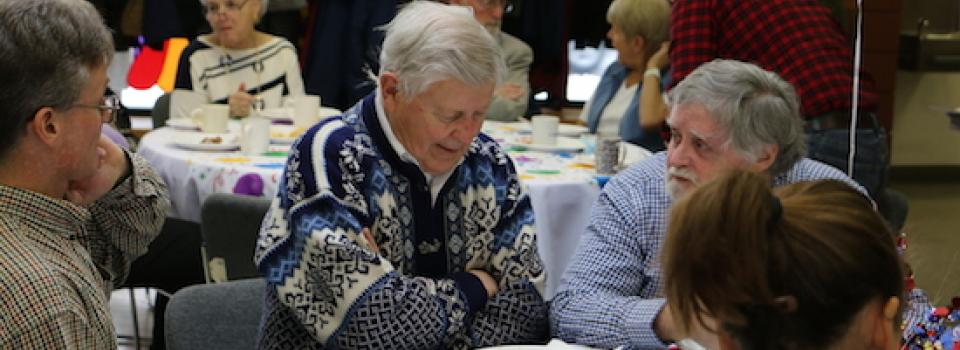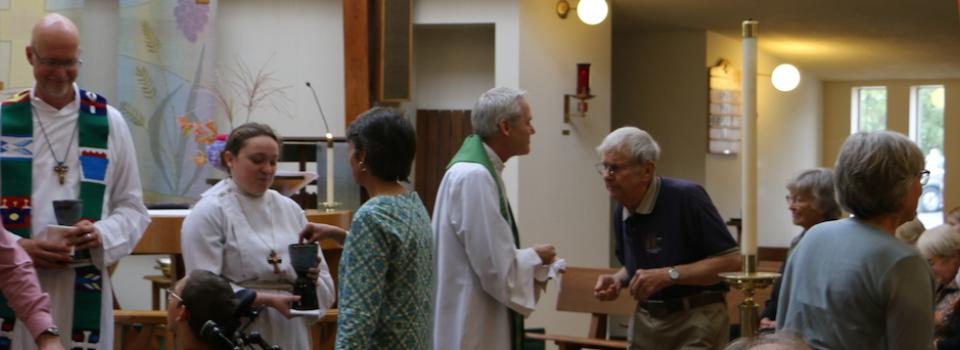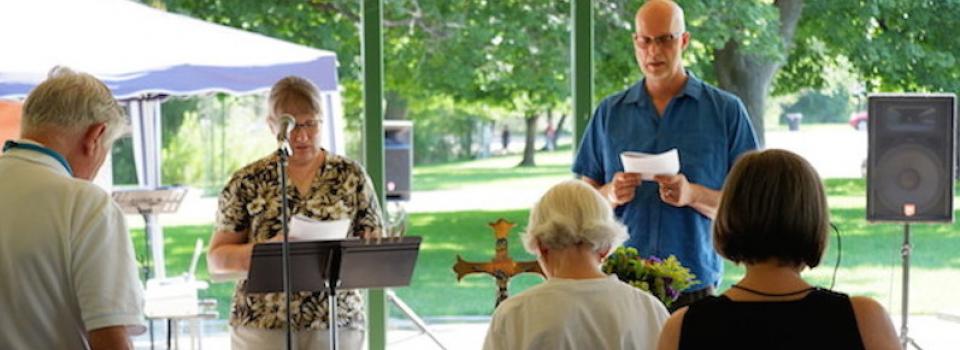Pastoral Ponderings-May-2019
Pastoral ponderings . . . .
It’s the season of awakening in the northern hemisphere. The season for celebrating the resurrection of Christ. Easter Sunday we heard the experience of the women at the empty tomb: “why do you look for the living among the dead” say the angels to them. Then the risen Christ appears to the disciples in hiding. They’re the same ones who abandoned him when all was lost. But there’s no shaming going on here. “Peace be with you” says Jesus not once but twice.
He still has the wounds from Good Friday; Thomas the missing disciple, is invited to touch them. We have a Savior who will always bear the wounds of his time on earth. The wounds aren’t even scars. “Reach out and put your hand in my side” Christ says to Thomas. Scars would indicate some healing, but these aren’t scars. We’re left to speculate why his wounds are always there in the risen Christ.
I like to think they’re there to tell us something about how God in Christ will never forget what human suffering and even death feels like. Why would that be important? Think about what our amazing bodies do with trauma. Science tells us that when we experience trauma, we go into shock. Our senses shut down. Almost all of them are compromised. When the trauma has passed, often the memories of the traumatic experience are hazy, incomplete, and hard to recall.
A lot of post-traumatic stress counseling is about trying to help with the recall of those memories. The body internalized the emotion of the trauma, and the trauma sometimes returns subconsciously. If the survivor can recall, and share their experience of emotional trauma with a compassionate listener, and grieve the experience consciously, sometimes there can be increased emotional healing from the trauma.
The wounds of the risen Christ represent for me the desire of God to never forget the trauma of betrayal, torture, and death. Even remember what it felt like to give up all hope, all faith, as Jesus did when he said “My God why have you abandoned me” on Good Friday. And if God never forgets what our emotional, spiritual, and mental suffering can be like, God’s compassion for us is permanent. That’s grace, isn’t it? Because suffering never ends for humanity. Even on Easter Sunday. Christians in Sri Lanka, and Jews in San Diego, were burying their dead and tending to their survivors in the days and weeks after Easter. Trauma, suffering, grief and loss all continue to be part of the human story. And the wounds of the risen Christ tell us that God will never forget that.
The good news for us is that we don’t have to live charmed lives. We don’t have to not experience bad luck, accidents, injury, illness, or attack in order to have the constant assurance that God’s still with us. The wounds of Christ will always be there. God knows what it’s like for us, and always will.
Plenty of folks will try and tell us that our misfortune is our own fault: “If you had more faith” “If you were a better person” “If you worked harder” etc, etc, etc, “this wouldn’t have happened.”
That’s not the kind of God that comes to the disciples at Easter: the disciples who gave up, the ones who cut and run, the ones who no longer had faith; the ones who didn’t want in any way, shape, or form to be identified with Jesus of Nazareth.
The good news is that the God who is the Risen Christ has no requirement, expectation, condition, or law for these miserable people. Only one word: “Shalom.” “Peace.”
We worship a God who in every way knows what it means to be human, and loves us anyway. We don’t have to somehow transcend our wretchedness, or our quickness to judge others, or our short-temperedness and impatience. We don’t have a God who requires we transcend ourselves, like many other religions advertise. We have a God in Christ Jesus who is right there in the locked room with us saying “Peace be with you.” “I’m right here with you.” “I’m not going away.”
At the end of the Jesus story, we find the amazing news that faithfulness can only come from God. God is there in Christ, holding out a hand to us, holding out love to us, being faithful when our faith fails us.
The risen Christ has wounds that will never disappear, because those wounds hold a compassion that will never disappear. This is the love that surprised his faithless disciples. It’s a love that will, I trust, always surprise us too. Alleluia! Pr. David




